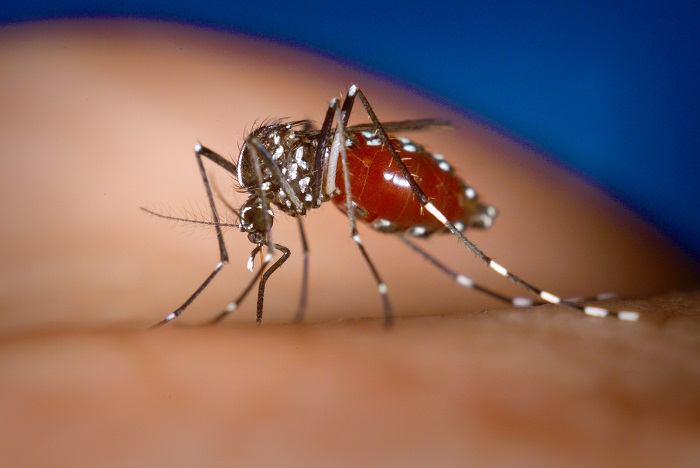-
Tips for becoming a good boxer - November 6, 2020
-
7 expert tips for making your hens night a memorable one - November 6, 2020
-
5 reasons to host your Christmas party on a cruise boat - November 6, 2020
-
What to do when you’re charged with a crime - November 6, 2020
-
Should you get one or multiple dogs? Here’s all you need to know - November 3, 2020
-
A Guide: How to Build Your Very Own Magic Mirror - February 14, 2019
-
Our Top Inspirational Baseball Stars - November 24, 2018
-
Five Tech Tools That Will Help You Turn Your Blog into a Business - November 24, 2018
-
How to Indulge on Vacation without Expanding Your Waist - November 9, 2018
-
5 Strategies for Businesses to Appeal to Today’s Increasingly Mobile-Crazed Customers - November 9, 2018
Mosquito-Borne Chikungunya Virus Can Cause Fatal Brain Infection
A study published Wednesday in the journal Neurology reveals that the mosquito-borne Chikungunya Virus (CHIKV) is a substantial cause of Central Nervous System disease (CNS), which begins with an inflammation of the brain, known as encephalitis. Muscle pain, joint swelling, headache or rash may also be manifested.
Advertisement
On St. Martin in December 2013, the virus reached just in the Western Hemisphere, but soon spread rapidly as far north as Florida and throughout Central and South America.
This is the first study to use the criteria to identify the encephalitic syndrome despite knowing for many years that the brain infection can result from the chikungunya virus. It includes wearing long sleeves and long trousers, and wearing certain repellants that would discourage the insects from transmitting the disease through bite.
The researchers reviewed a chikungunya outbreak that affected 300,000 people on Reunion Island, off the coast of Madagascar, in 2005-6.
Not everyone who has encephalitis dies – 17 percent of the encephalitis patients in this study died – but the disease often leaves lasting behavioral and cognitive changes or defects.
The rate by which encephalitis occurs in infants is 187 per 100,000 cases, while for elderly citizens over 65, it was 37 per 100,000 cases. Many cases have occurred in the United States in people who acquired the virus while traveling, but the first locally transmitted case in the US occurred in Florida in July. Most people recover within a week, but for some, the joint pain can continue for months and even years.
“Our findings suggest that without an appropriate strategy or mitigating the extent of the outbreak, chikungunya may become a major cause of infectious encephalitis in the U.S., with the potential of disease burden exceeding that of West Nile virus”.
Currently, no vaccine is available to protect against the unsafe threat that is the Chikungunya virus, although one is in development.
This was an alarming epidemic of a modified strain that led to more serious outcomes than previous outbreaks of the virus, study authors reported. According to Dr. Patrick Gérardin, it seems the rates were much higher in infants and older people. Thirty to 45 percent still suffer ongoing disabilities.
Outbreaks of chikungunya have occurred in many regions of the world, including Africa, Asia, and the Caribbean islands, the researchers said. If people develop arthritis as a result of infection with the virus, they are given anti-inflammatory drugs, he said. Patients infected will have fever and joint pain, according to the Australian Department of Health.
Advertisement
Chikungunya is a re-emerging virus that has expanded from Indian Ocean locations like Reunion Island into areas closer to the United States, said Dr. Amesh Adalja, a senior associate at the University of Pittsburgh’s UPMC Center for Health Security in Baltimore.





























